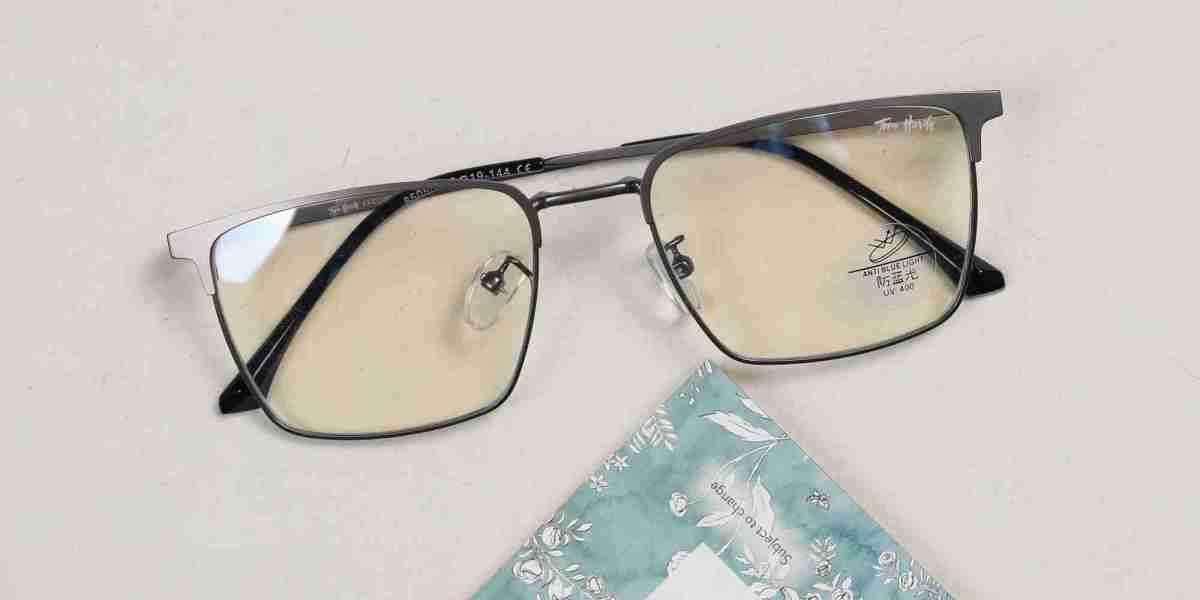Vision correction is essential for millions of people worldwide, and the choice between eyeglasses and contact lenses can be a personal and practical decision. While both options serve the same purpose of correcting refractive errors and improving vision, they offer unique advantages and considerations. In this comprehensive article, we'll explore the differences between eyeglasses and contact lenses, helping you make an informed decision that aligns with your lifestyle, preferences, and vision needs.
Eyeglasses: The Traditional Choice
Eyeglasses have been a trusted and time-honored solution for vision correction for centuries. These versatile devices consist of corrective lenses mounted in a frame that rests on the nose and ears. Eyeglasses offer several benefits:
- Convenience: Eyeglasses are easy to put on and take off, making them a convenient option for those who prefer a hassle-free vision correction solution.
- Low Maintenance: Compared to contact lenses, eyeglasses require minimal maintenance. Regular cleaning and occasional adjustments are typically all that's needed.
- Safety: Eyeglasses provide a physical barrier between the eyes and potential hazards, making them a safer choice for certain occupations or activities.
- Wide Range of Options: Eyeglasses come in a vast array of frame styles, materials, and lens types, allowing individuals to express their personal style while meeting their vision needs.
- Cost-Effective: In the long run, eyeglasses can be more cost-effective than contact lenses, especially for those who wear them intermittently or require frequent lens replacements.
Contact Lenses: The Invisible Solution
Contact lenses have revolutionized the vision correction industry, offering a discreet and convenient alternative to eyeglasses. These thin, corrective lenses are placed directly on the eye, providing several advantages:
- Natural Vision: Contact lenses move with the eye, providing a wide field of vision without the obstructions or distortions sometimes associated with eyeglass frames.
- Enhanced Appearance: For many individuals, contact lenses offer a more natural and attractive appearance, boosting self-confidence and versatility in personal and professional settings.
- Convenience for Active Lifestyles: Contact lenses eliminate the need for handling and cleaning eyeglasses, making them ideal for active lifestyles and various sports or recreational activities.
- Corrective Options: Contact lenses are available for a wide range of vision problems, including nearsightedness, farsightedness, astigmatism, and presbyopia.
- Cosmetic Enhancements: Specialty contact lenses, such as colored or cosmetic lenses, can change the appearance of the eyes for aesthetic purposes.
Factors to Consider
When choosing between eyeglasses and contact lenses, several factors should be taken into consideration:
- Vision Needs: The type and severity of your vision correction requirements will play a significant role in determining the most suitable option.
- Lifestyle: Your daily activities, hobbies, and profession may influence your decision, as some pursuits are better suited for eyeglasses or contact lenses.
- Comfort and Adaptation: Some individuals may find contact lenses more comfortable, while others may prefer the stability and familiarity of eyeglasses.
- Eye Health: Certain eye conditions or sensitivities may make one option more suitable than the other, requiring guidance from an eye care professional.
- Cost: While eyeglasses may be more cost-effective in the long run, contact lenses often require ongoing expenses for replacements and solutions.
- Personal Preferences: Individual preferences, such as style, convenience, and confidence, should also be considered when making your choice.
The Best of Both Worlds
In many cases, individuals may choose to use both eyeglasses and contact lenses to suit their varying needs and preferences. For example, one might wear contact lenses during the workday or for sports and switch to eyeglasses for relaxation or specific activities.
Consult with Your Eye Care Professional
Ultimately, the decision between eyeglasses and contact lenses is a personal one that should be made in consultation with a qualified eye care professional. They can assess your specific vision needs, eye health, and lifestyle factors to recommend the most suitable option for you. Regular eye exams and follow-ups are essential to ensure the continued safety and effectiveness of your chosen vision correction solution.
Embrace Clear Vision and Confidence
Whether you choose eyeglasses or contact lenses, prioritizing your vision health and comfort is paramount. With the right vision correction solution, you can enjoy clear, crisp vision and the confidence to pursue your passions and daily activities with ease. Explore your options, consult with professionals, and embrace the freedom of clear, comfortable vision.


